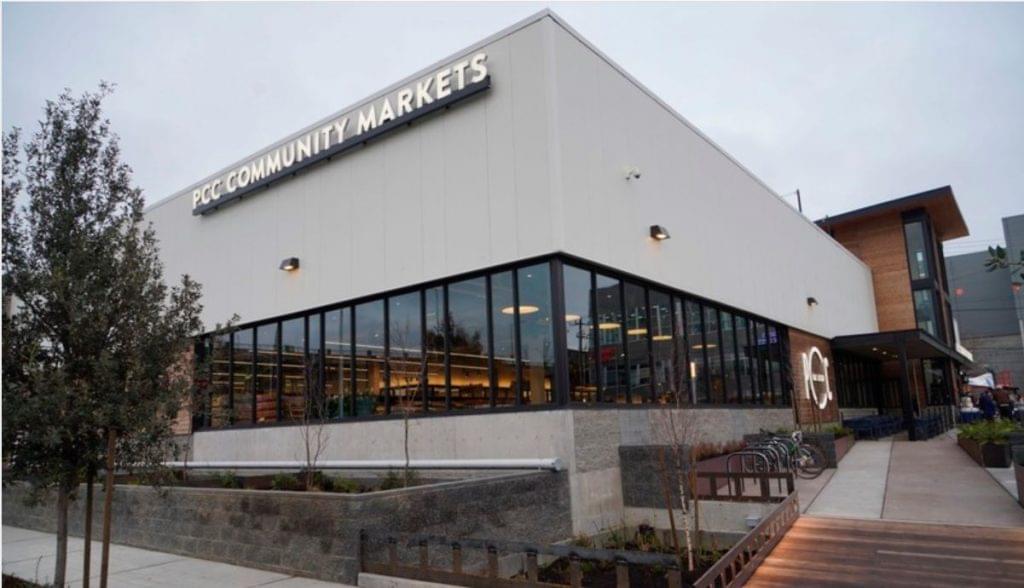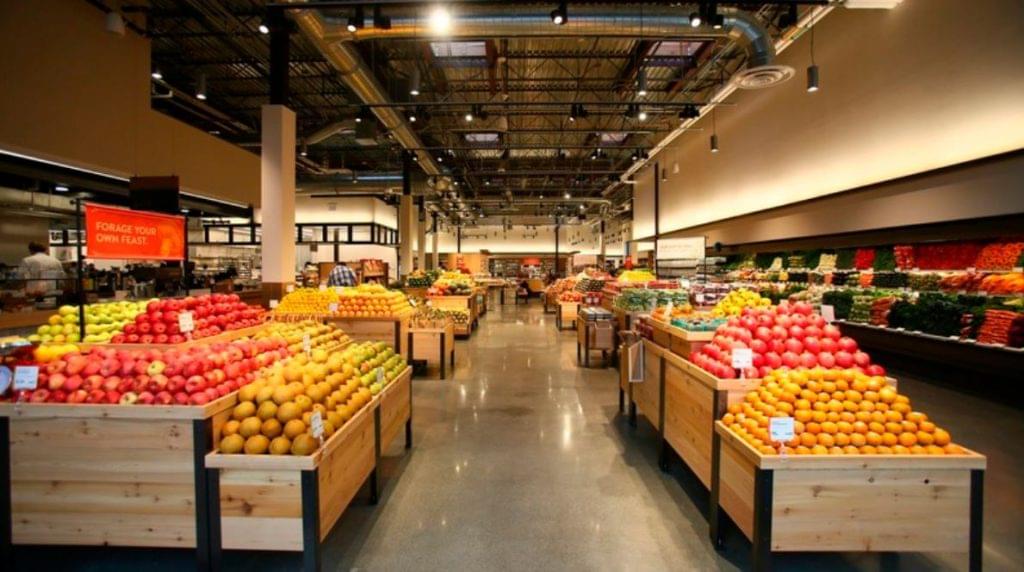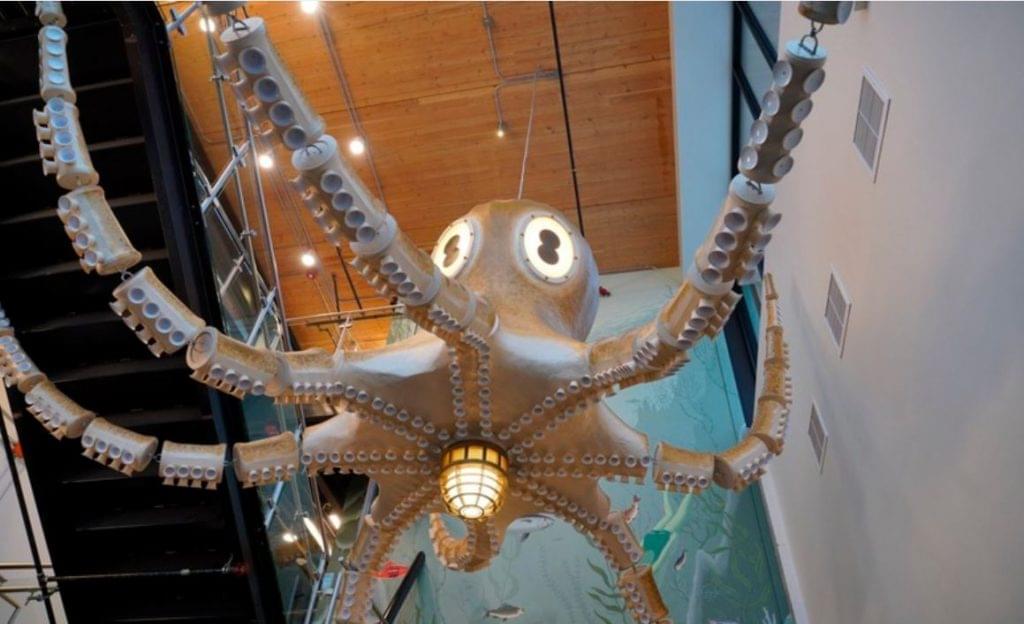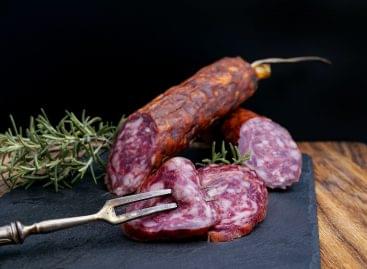The world’s first, really green grocery store
The PCC Community Market in the Ballard neighborhood of Seattle has become the world’s first Living Building Challenge (LBC) Petal-Certified grocery store. LBC Petal certification for PCC Ballard represents rigorous green building given by the International Living Future Institute’s LBC Petal Certification, commonly recognized as the world’s most rigorous green building standard.

On the Retail Enviroments site published by *POPAI Hungary’s mother organisation Shop! HQ, Jo Rossman, publisher and editor emphasizes that the store met stringent requirements for the Materials, Place and Beauty Petals of the LBC Certification.
Standards to follow
“PCC is setting the standard for grocers around the world, showing the possibilities of building for a better future,” says Shawn Hesse, director of business development for the International Living Future Institute (ILFI).
The Ballard PCC certification comes after years of effort to reimagine store design.
“For decades, PCC has worked to build sustainable and organic food systems so that we could sell food with less harmful chemicals in our stores. Through our partnership with ILFI, we were able to reduce the harmful chemicals in our stores themselves,” says Brenna Davis, PCC’s VP of social and environmental responsibility. “In our pursuit of the Petals, we built a stunning store with sustainably sourced and less toxic building materials; energy-efficient systems that lower climate impact; and beautiful public art with the sole intent of celebrating the Ballard neighborhood.”

Safe materials, focus on community
A critical, resource-intensive element of the certification was ensuring that no building materials contained chemicals on the LBC Red List, which denotes over 800 toxic substances having the greatest negative impact to human and ecosystem health. PCC spent thousands of hours over the course of two years reviewing hundreds of building materials and pieces of equipment to confirm that materials were compliant. Additionally, the project team wrote more than 300 letters to manufacturers promoting safe building products.
PCC had to find new vendors for Red List-free interior finishes, such as drywall, concrete finishes, and paints. PCC also worked with some existing manufacturers to change their processes and deliver custom designs. For instance, the initially proposed conveyor belt for checkout stations contained PVC, a Red List substance. After an extensive search for materials, the manufacturer identified a urethane/polyester belt alternative. PCC also worked with a lighting manufacturer to customize fixtures with a material that’s safer than the Red Listed powder coating the manufacturer had been using.
The Ballard store maximizes use of natural light and uses LED fixtures. More than one-third of building materials (by material budget) were sourced within 311 miles of the store, and 97% of building materials (by material budget) were sourced from within the U.S.
Protecting thriving ecosystems
The ILFI’s Habitat Exchange Program works to protect existing, thriving ecosystems from compromise as a result of development. The co-op contributed funds to protect, in perpetuity, an area of land equivalent to Ballard PCC’s building footprint of approximately 27,000 sq. ft.
Inspired art
An entryway installation by Seattle illustrator and artist Kyler Martz pays homage to the nautical roots of the Ballard neighborhood and Puget Sound, home to the world’s largest species of octopus. The installation features a 16-ft.-tall octopus and an underwater-themed mural. To avoid Red List materials, Kyler replaced his standard process Styrofoam initial model with wood. Reclaimed materials include 448 used ramekins from a local restaurant supply store for the octopus’ tentacles.

Ongoing commitment to sustainability
Strategies outside of the Petal requirements resulted in water conservation and sustainable refrigeration. Compared to standard models, Ballard PCC’s steam cookers use 90% less water, dishwashers use 40% less water, and faucets use 60% less water. A carbon dioxide refrigeration system boasts 3,000 times less of a global warming potential than the synthetic refrigerants used in most grocery stores.
“We look forward to seeing how PCC continues to drive positive impacts in their community as they pursue the Challenge with their future locations,” says ILFI’s Hesse.
PCC Community Markets is the largest community-owned food co-op in the U.S. The Ballard store is one of 15 locations. Two other stores, in West Seattle and in Bellevue, were built for certification and are undergoing evaluations. The co-op also plans to develop the upcoming Downtown, Kirkland (relocation), and Madison Valley stores to meet LBC requirements. PCC is participating in ILFI’s Volume Pilot Program, which increases efficiency when certifying multiple projects by evaluating store design and materials at a portfolio scale.
* POPAI, from 2015 named Shop! is an international organization of the Marketing and Retail industry which headquarters placed in Chicago and Hollywood Florida, representing nearly 2000 local offices. Hungary joined with the POPAI Hungary Association in 2003, which has since then been a nonprofit professional, educational, research and knowledge transfer organisation active mainly in the FMCG sector. Read more: popai.hu
Related news
They want it to be premium, but also sustainable – expectations of the youngest generation
GlobalData’s latest report, “Demographics in Retail and Apparel” – which…
Read more >Lab-grown meat: the future of sustainable food production or a dead end?
In recent years, increasing attention has been paid to laboratory-grown…
Read more >European Union launches another Innovation Fund round
A new round of the European Commission’s Innovation Fund is…
Read more >Related news
They want it to be premium, but also sustainable – expectations of the youngest generation
GlobalData’s latest report, “Demographics in Retail and Apparel” – which…
Read more >Zsolt Liptai became the winemaker of the year
The Hungarian Wine Academy (MBA) has awarded Zsolt Liptai, the…
Read more >Tips for avoiding credit card fraud during the holiday season
The Christmas season is all about the joy of shopping,…
Read more >






